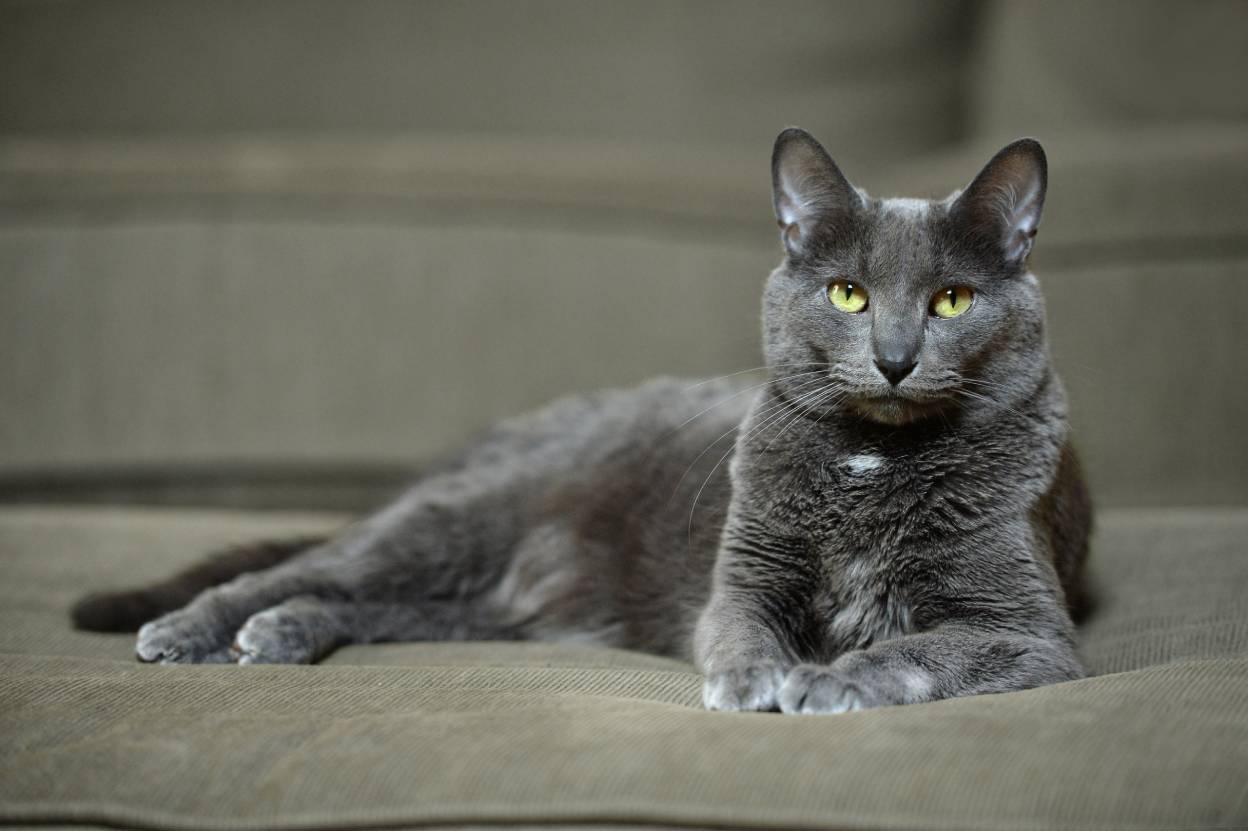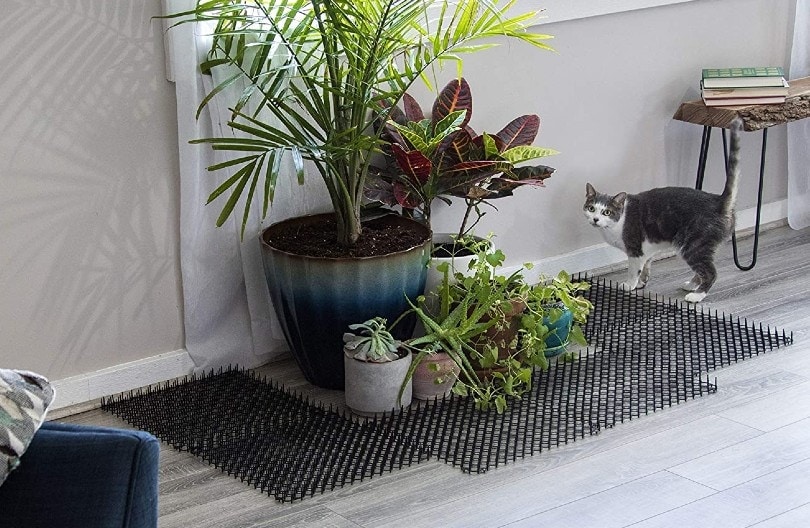Why Does My Cat Only Sleep With Me? 5 Vet-Reviewed Reasons
Updated on
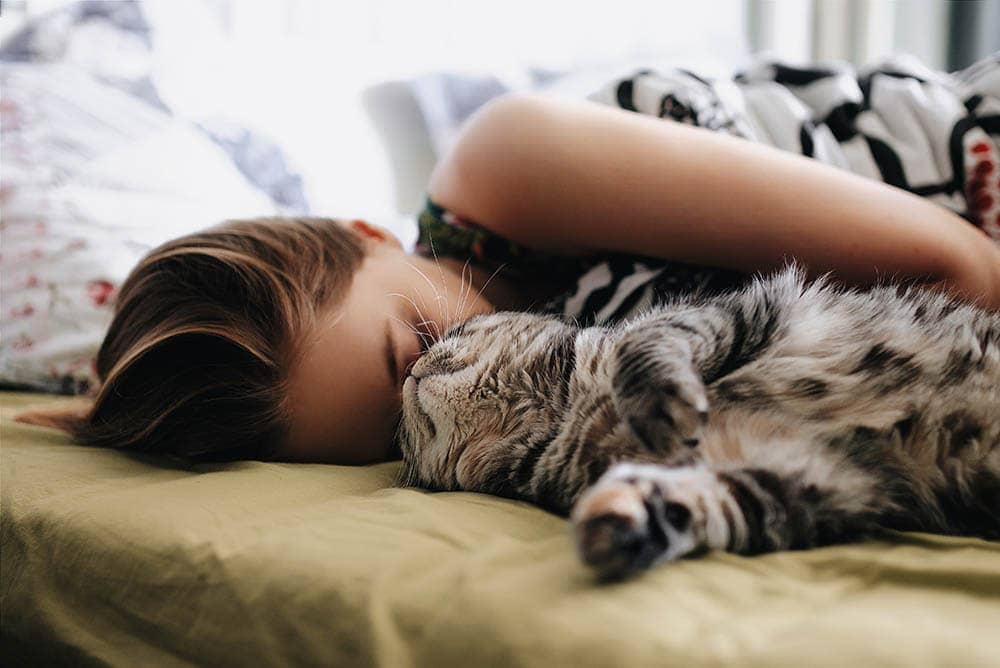
Even the most aloof and independent cat likes to cuddle up to their owner at naptime or bedtime. But have you ever wondered why your cat only sleeps with you? Of course, we can’t know why cats behave like this, but we have some pretty good theories. Read more about some of the most likely reasons your cat likes to sleep near you.
The 5 Reasons Why Your Cat Only Sleeps With You
1. Warmth
In your cat’s mind, they have two choices. “I could sleep next to my warm owner, or I could go out to the sofa by myself and be cold.” Except for a few hairless breeds, cats have warm fluffy coats. However, all that fur does not prevent them from getting cold at night.
You’ll notice that cats often gravitate to warm areas during the day, like by a heating vent or in a ray of sunlight streaming through a window. At night, you’re a warm and cuddly option.
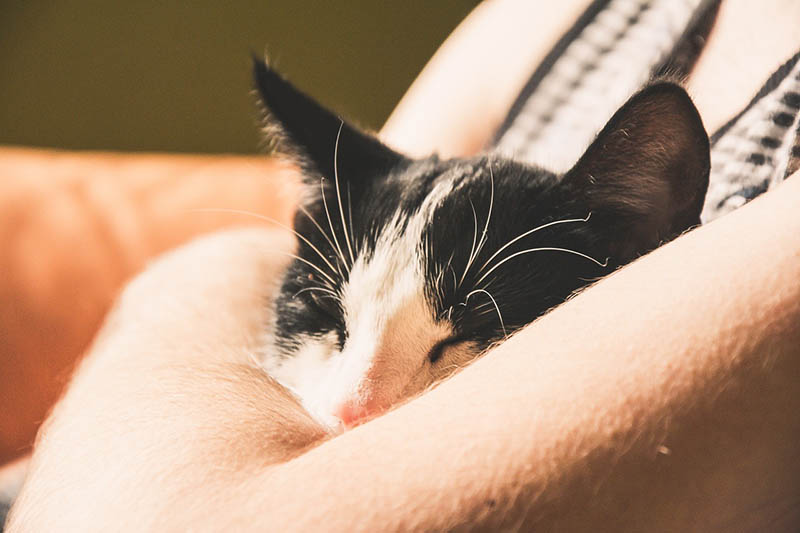
2. Territorial
Your cat’s habit is tied to another feline behavior, claiming their territory. Watch your cat the next time they lay next to or on you. If they knead your bed, blankets, pillow, or your body with their paws, that is one way they show physical affection.
There’s science behind this kneading, which is also lovingly referred to as “kitty is making biscuits.” Cats have scent glands in their paw pads that stimulate when they press their feet against an object or a person. Your cat is not disrespecting you when they “walk all over you,” but rather quite the opposite.
3. Companionship
Your cat may climb into bed with you simply because they’re lonely at night. Most of us spend about 8 consecutive hours sleeping at night, which cats probably consider peculiar behavior! They sleep off and on around the clock, for an average of 78 minutes at a time.
While cats sleep during the daylight hours, it’s a myth that they’re nocturnal. Cats are generally most active around dawn and dusk, a behavior that scientists call crepuscular.
Each time your kitty wakes up during the night, they probably wonder why you’re still sleeping. They feel refreshed after their hour-long nap, so why isn’t it time to eat or play?
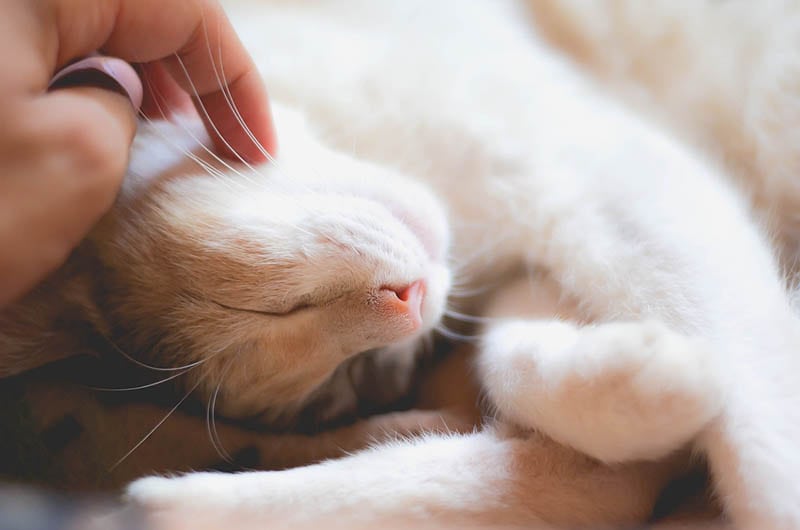
4. Security
You represent many positive things to your cat, including security, companionship, and food. You fill their food bowl, play with them, and clean their litter box.
In the wild, cats would spend the nighttime hours hiding, taking short naps, and searching for food. Your modern pet cat doesn’t have to do that, but they still crave security. And the safest, most secure place in the house is right by your side.
5. Instinct
There’s some science behind why your cat wants to sleep next to you. In one study, researchers offered pet cats and shelter cats various stimuli: human interaction, food, toys, and scent. The cats’ first preference was time spent with a human, while the food was their second choice.
Another study looked at how a cat’s level of oxytocin (the “feel good” hormone) changed with human interaction. Cats in the study experienced a 12% increase in their oxytocin levels after just 10 minutes of playtime with their owners.
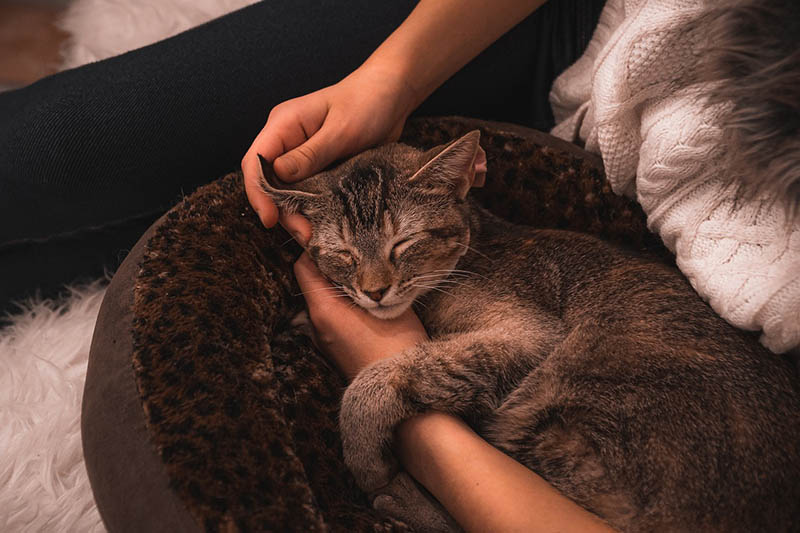
The Pros and Cons of Letting Your Cat Sleep in Your Bed
Allowing your cat to sleep with you is a personal preference. The pros are additional cuddle time and a way to fit more bonding into your busy schedule. Many people find it soothing to hear their cat breathing or purring right next to them.
Having a cat in your bedroom can have disadvantages, too. The average cat wakes up every hour and a half or so. This behavior may disrupt the quality of your sleep if your cat meows wants to play, or walks all over your bed. Keeping your cat out of your bedroom can also help with allergies. You’re not a bad pet parent if you choose not to sleep with your cat. There are plenty of daily opportunities to show your cat some love.
FAQs
Why Does My Cat Sleep on My Head?
You may like having your cat sleep with you, but even the most devoted cat lover has their limits. Your head isn’t a good place for your kitty to park, so why do they do it? Your head is relatively stationary when you sleep, as you may move your arms and legs around. They might also want to rub their cheeks against your skin when the rest of your body is covered up.
Having a pet means finding ways to shower them with love and cuddles, even when you aren’t around. Whether you are at work all day or quickly running errands, the Hepper Nest Bed will keep your cat cozy, supported, and comfortable. Made from flexible molded foam and a self-warming sherpa fleece insert, your cat will be wrapped in a pleasant hug sure to keep them at ease. Having a modern Nest to to sleep in while you are away means more playtime and bonding when you are together. Learn more here.
Is It Okay for My Kitten to Sleep Next to Me?
Yes, it is okay for most kittens aged 8 to 10 weeks or older to sleep with you. A kitten should be healthy and weaned from its mom before it crawls into bed with you.
Younger kittens and those sick or unable to walk, run, and jump are safer in their bed on the floor. If you’re unsure about letting your kitten into your bedroom, give it some thought. It’s not a habit you want to start if you don’t want a cat in your bed for the next 15 years.
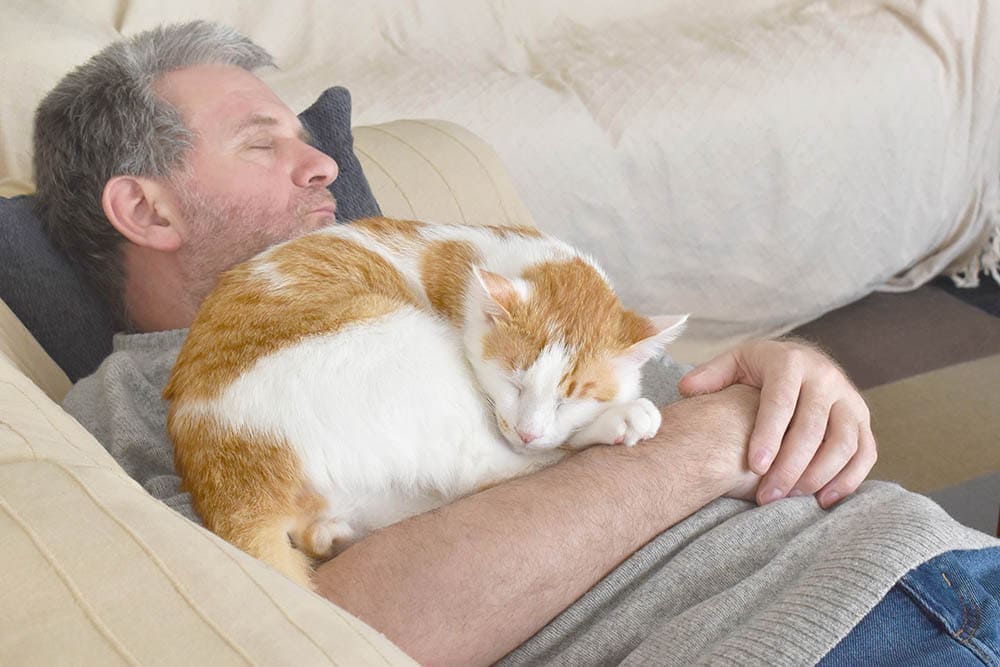
Can Cats Sleep with Kids?
It should be fine to let your cat sleep with an older, healthy child. Remember that close contact with a cat can exacerbate asthma and allergies. Consult your child’s doctor if you have any concerns.
You should never let a cat climb into a baby’s bassinet, crib, infant seat, or toddler bed. There is a risk that a cat could suffocate an infant.
Can You Get Sick From Your Cat Sleeping in Your Bed?
Healthy individuals have a low risk of getting sick just from a cat sleeping in their bed. Most diseases that cats can pass on to humans aren’t spread through petting and cuddling. Illnesses like cat scratch disease, salmonella poisoning, and toxoplasmosis are spread via contact with a cat’s urine, saliva, or feces. People with compromised immune systems, young children, and the elderly risk catching zoonotic diseases.
Your cat can, however, pass along ringworm or fleas from cuddling with you. Regular vet check-ups keep you and your cat healthy.
Conclusion
Your cat sleeps with you for warmth, security, companionship, and to mark their territory. Research shows that cats release a “feel good” hormone called oxytocin when they spend time with humans, such as cuddling at bedtime.
Cats are crepuscular, not nocturnal, and they sleep off and on at night. You might not like sleeping with your cat if they wake you up by moving around or meowing. However, most cat owners seem to get plenty of sleep with their pets curled up on their beds.
Related Reads:
- How Can My Cat Tell When I Wake Up? Signs They Watch For
- Why Does My Cat Lie on My Stomach? Common Reasons
Featured Image Credit By: Marina mrs_brooke, Shutterstock



